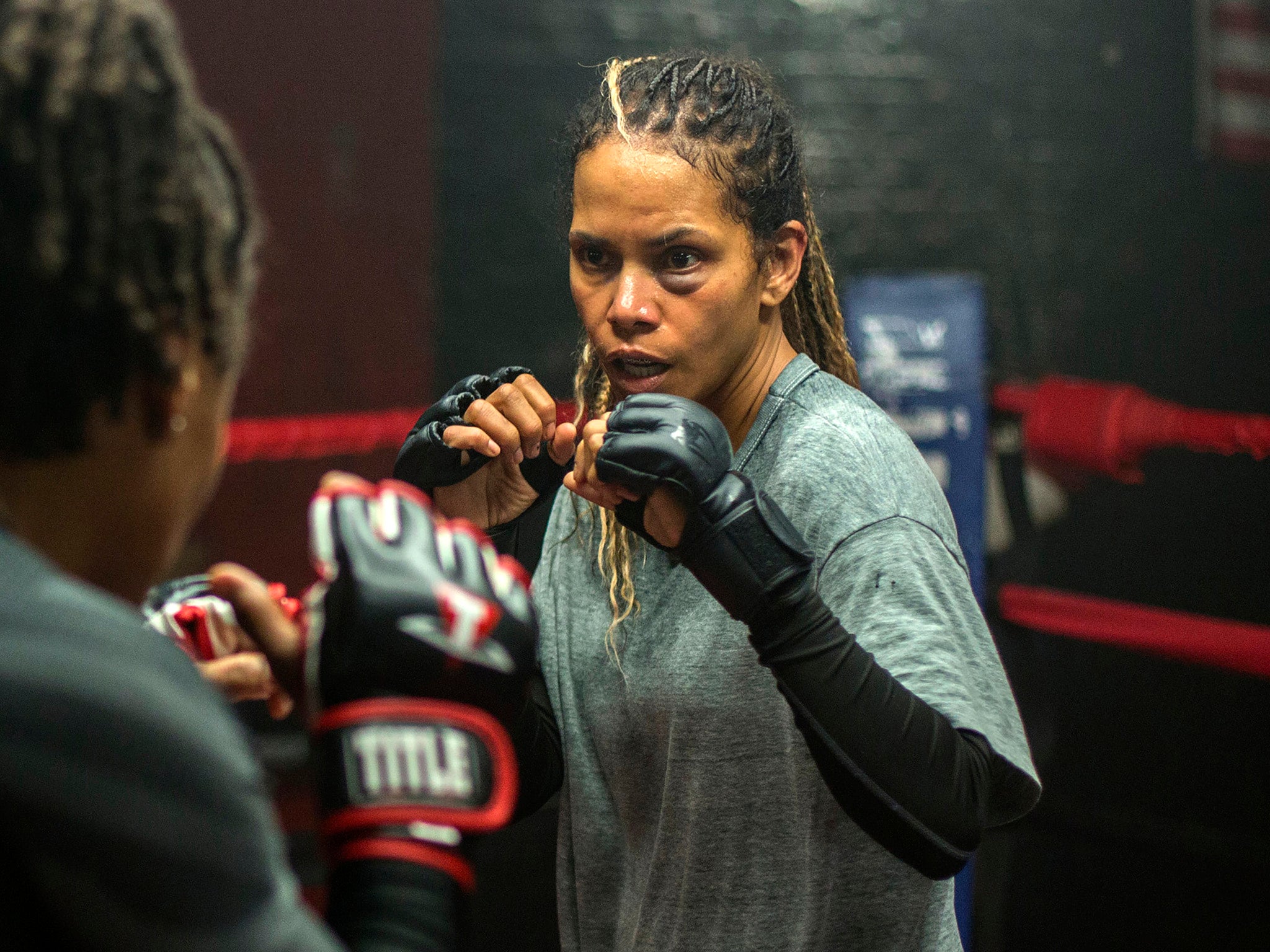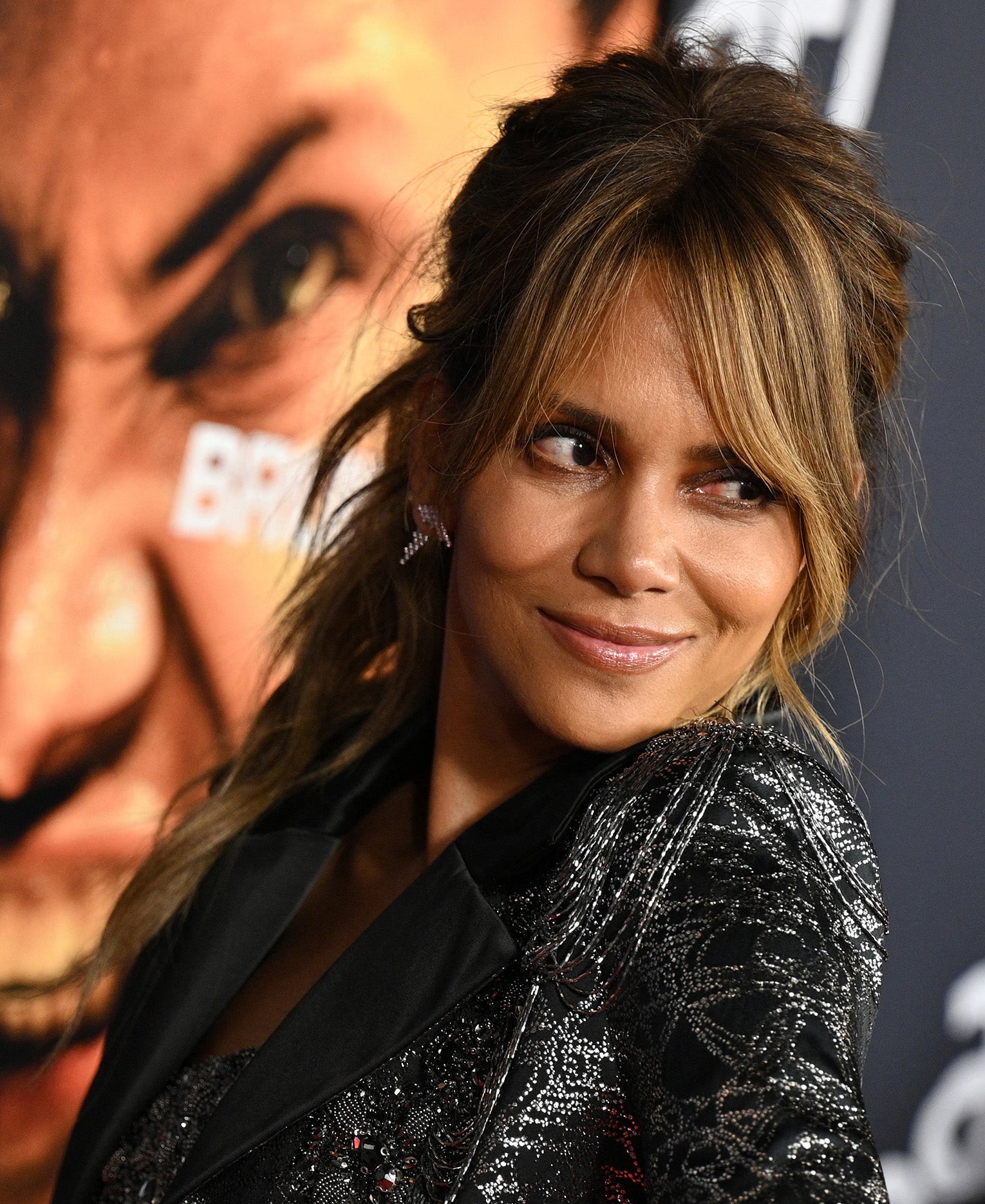The Independent's journalism is supported by our readers. When you purchase through links on our site, we may earn commission.
Halle Berry as a beaten-down MMA fighter? Spot the similarity
No wonder the Oscar-winning former Bond girl has made Netflix’s ‘Bruised’ her directorial debut, says Adam White – this incredibly charismatic actor has had to fight and hustle every step of the way her entire career


Halle Berry is always hurting herself. There was the time she broke her arm on the set of the 2003 horror movie Gothika. Or when she nearly choked to death on a fig while playing a Bond Girl in Die Another Day. Catwoman? Smacked on the head with a light fixture. The Call? A face-plant onto a pavement. All not-very-good movies, yet all graced with Berry’s full-body commitment on set, even if it leaves her concussed or wounded. But that’s also the joy of watching an actor like Halle Berry. The work doesn’t always call for it, yet she will deliver in spades.
I kept thinking about Berry’s dedication to her craft while watching her new film Bruised. Streaming on Netflix now, Bruised marks Berry’s directorial debut and her first proper star vehicle in years. She plays a past-her-prime mixed martial arts fighter with an abusive boyfriend and a young son she once walked out on. Hers is a story of gradual triumph. We meet her knocked-down and battle-weary, and we follow her as she falls in love, bonds with an adorable child and rises like a phoenix from the ashes. It’s a film and a character that luxuriates in clichés, of course, but Berry tears into it. She acts with her teeth, delivering a performance of such ferocious power that she is deservedly earning Oscar buzz. And when you read that she broke two ribs on set and powered through the rest of filming regardless… well, of course she did.
Berry has spent much of her career fighting. She rose to fame at a time when Hollywood’s sole Black leading lady was Whoopi Goldberg, and only through sheer force of will did she become a superstar. It’s easy to forget the climate in which Berry emerged. Her early interviews are full of horror stories about industry racism – how she was rejected for the 1996 film Broken Arrow because her character would have been a park ranger, and a studio executive believed that there were no Black park rangers; how she wasn’t allowed to audition for Indecent Proposal or The Silence of the Lambs as casting a Black woman would have apparently “changed what the movie was all about”.
Through it all, Berry was open about the realities of the industry, and how her career path would always be different to those of her white peers. Yes, she did turn down the role in Speed that made Sandra Bullock a star. But Berry also knew that everything Bullock got after Speed – the star vehicles, the magazine profiles, the power – wouldn’t have happened to her. “Had it been me driving that bus, that wouldn’t be my reality, and that’s a fact,” she told Movieline Magazine in 1995. “As a Black woman, I know better. My struggle is very different.”
This often seems to get forgotten when we talk about Berry. As her career rose – becoming the first Black woman to win the Best Actress Oscar for Monster’s Ball; playing Storm in X-Men – she would often be mocked for her career choices. She’d star in salacious thrillers like Perfect Stranger and Gothika, work considered somehow beneath an actor of her stature. Catwoman was a disaster. She would often appear on lists of actors supposedly “cursed” by their Oscar wins.
To imagine Berry could just pick and choose from the best parts, though, wildly misunderstands Hollywood. Berry’s acceptance speech at the 2002 Oscars is infamously blubbering, the actor breathlessly thanking her supporters through tears. But if you actually listen to her words, it is heartbreaking. She talks about her victory being particularly meaningful, that a ceiling had been broken for “every nameless, faceless woman of colour that now has a chance”. Berry is still the only Black woman to ever win that award.
“I thought, ‘Oh, all these great scripts are going to come my way; these great directors are going to be banging on my door’ – it didn’t happen,” she told Variety this year. “It actually got a little harder.”

Despite that, Berry never got complacent. She remains one of the most charismatic actors to watch on screen, even if the material rarely matches what she brings to it. The Call – in which she plays a 911 operator rescuing a kidnapped Abigail Breslin – is compelling because her frantic performance makes it compelling. Armed with a pack of dogs who tear men apart at her command, she is a riot as a prolific assassin in John Wick 3. Even in Catwoman, when she’s asked to prowl seductively, sleep on top of a shelf and fight a woman flogging evil face cream, Berry goes for it, always fighting to sell the faintly ridiculous. No human, before or since, has licked from a bowl of milk with as much unbridled conviction.
Then there’s Bruised. Berry is so good in it because it’s effectively her story. Not the MMA fighting, of course, nor its melodramatic plot detours, but that sense of underdog hustle, of having to fight for every small victory, that has always defined her career. She seemed to realise early on that it wouldn’t just be advisable, but essential.
In 1999, Berry earned some of her strongest reviews for the HBO movie Introducing Dorothy Dandridge, about one of Hollywood’s first Black movie stars, who was also the first to receive a Best Actress Oscar nomination. Dandridge’s story was ultimately tragic. She faced the worst of US segregation while simultaneously being a superstar, struggled for work, and died of a drug overdose at the age of 42. The part seemed to change Berry’s entire outlook.
“She couldn’t put a toe in a pool, use the same lavatories or eat in the same restaurants as the people she worked with,” Berry told The New York Times in 2002. “I don’t know what that does to a person’s soul. Having to live her life for three months made me vow not to let the industry chew me up and spit me out. It’s my responsibility to force them to know what to do with me, because I think that’s what ultimately killed her.”
Flash-forward nearly 20 years, and Berry is still here, and still forcing us all to take notice.
‘Bruised’ is streaming on Netflix now
Join our commenting forum
Join thought-provoking conversations, follow other Independent readers and see their replies
Comments


Bookmark popover
Removed from bookmarks